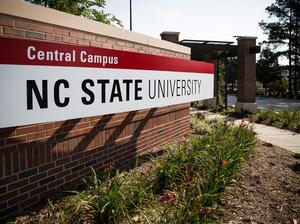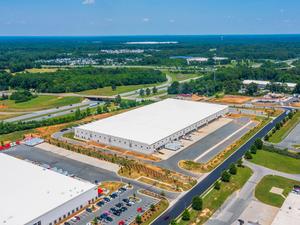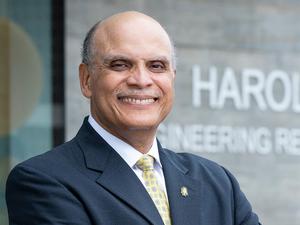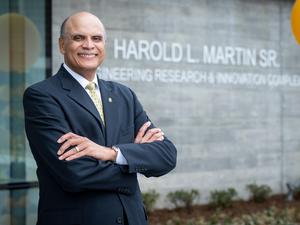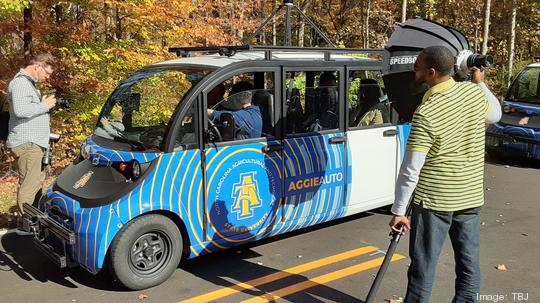
A research team at N.C. A&T State University working on self-driving transit vehicles took a major step Tuesday toward eventual commercialization: the unveiling of the university’s rural-style test track for autonomous vehicles.
Federal Highway Administration Acting Administrator Stephanie Pollack joined A&T Chancellor Harold Martin and Greensboro Mayor Nancy Vaughan in taking a test ride in the electric transit mini-vans equipped with the university-developed control system around the test track.
The track, at A&T's Gateway Research Park North Campus, is designed to mimic real-world conditions, especially those outside city-style grids that are easier for autonomous vehicles to navigate. It was built with help from a National Science Foundation grant and additional aid from Downtown Greensboro Inc., the N.C. Department of Transportation, and the A&T College of Engineering.
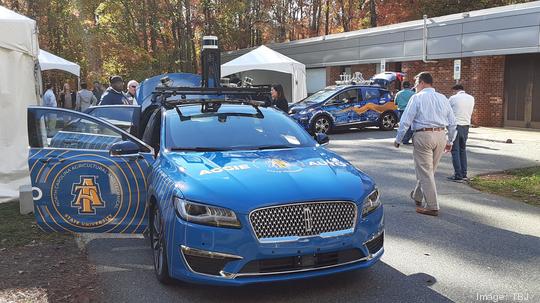
The test vehicles use cameras above the windshield and oriented toward the front, a front radar sensor, and a roof-top LiDAR – light-based radar – to perceive what’s on the road. They can recognize obstacles, pedestrians, other vehicles, curves and even traffic circles.
The work the team has done is leading to the next major step: A shuttle route between campus and downtown Greensboro to pilot-test the system in a real-world setting.
The test could come as early as this spring, said Ali Karimoddini, associate professor in the Department of Electrical and Computer Engineering.
A route map Karimoddini displayed during a brief presentation at Tuesday’s event depicted a route along Friendly Street and Market Street to approximately Elm Street and back. The vehicles would have human drivers for safety. But it would mark a major step in validating and proving the use of the A&T system for use in transit.
“We are focusing on public transportation, and that's something that I think is the niche in North Carolina to research to serve the community,” Karimoddini said.
The emphasis Tuesday was on how the test track mimics rural roads, which can be more challenging for autonomous vehicles than the relatively predictable grids of cities.
“There are sharp turns, there are narrow roads, there are areas that have no GPS,” Karimoddini said. “And that's really the kind of rural areas that need the sort of testing that can be done here.”
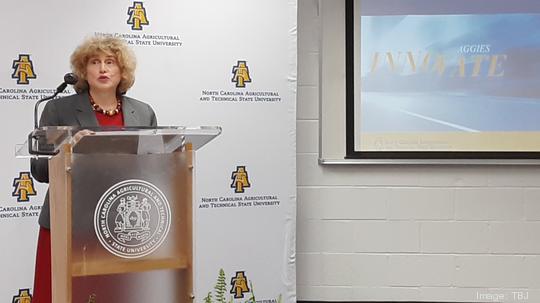
Pollack noted that transportation is especially important for rural and small-town people who have barriers to traditional modes, and congratulated A&T for focusing on using autonomous vehicles, or AVs, for that purpose.
“Done right, transportation is a powerful engine of opportunity, connecting people to jobs, education and resources,” Pollack said. “For a senior, access to an AV can make getting to a critical medical appointment easier and safer. For folks with disabilities, or low income and underserved communities, an AV can be critical link to a job that would be the difference between barely scraping by and changing the trajectory of a family's life.
“For rural communities where travel times are measured in hours, not minutes, a AV could give better access to economic opportunities and keep communities connected.”

